Home> Company News> Maintenance and Troubleshooting Tips for Hydraulic Pressure Compensator Valves in Your System
- AddressNo.9088 SHAHEXI ROAD, NANSHAN DISTRICT,SHENZHEN,CHINA
- Factory AddressNo.9088 SHAHEXI ROAD, NANSHAN DISTRICT,SHENZHEN,CHINA
- Worktime9:00-18:00
- Phone(Working Time)0531-85064681
- Phone(Nonworking Time)0531-85064681
- Fax0531-85064681
Maintenance and Troubleshooting Tips for Hydraulic Pressure Compensator Valves in Your System
NOVEMBER 02, 2022Introduction to Hydraulic Pressure Compensator Valves
Hydraulic systems are widely used in various industries due to their efficient power transmission capabilities. One of the critical components of a hydraulic system is the hydraulic pressure compensator valve. These valves play a crucial role in regulating system pressure and ensuring that the hydraulic system functions correctly.
A hydraulic pressure compensator valve is a type of flow control valve that regulates system pressure by adjusting the flow rate of hydraulic fluid in response to changes in pressure. It maintains a constant pressure in the hydraulic system, even when the load changes. The valve is designed to compensate for any pressure changes caused by variations in fluid volume, temperature, or load conditions.
The importance of hydraulic pressure compensator valves in hydraulic systems cannot be overstated. Without these valves, the hydraulic system may not be able to regulate pressure and function efficiently, leading to potential damage to system components, decreased system performance, and increased downtime. Therefore, understanding the function and role of hydraulic pressure compensator valves is essential for anyone involved in the maintenance and operation of hydraulic systems.
Common Maintenance Practices for Hydraulic Pressure Compensator Valves
Proper maintenance of hydraulic pressure compensator valves is critical to ensure optimal performance and longevity of hydraulic systems. Neglecting maintenance can lead to a range of issues, from decreased system efficiency to more serious problems like valve failure and system shutdown. In this section, we will discuss some common maintenance practices for hydraulic pressure compensator valves.
-
Regular Inspection: Regular inspection of hydraulic pressure compensator valves is essential to ensure they are functioning correctly. Visual inspection of the valves for leaks, cracks, or other damage can help identify problems before they escalate. It is important to conduct inspections at regular intervals, depending on the system's operating conditions, to catch any issues early on.
-
Fluid Analysis: Fluid analysis is another critical maintenance practice for hydraulic pressure compensator valves. Analyzing the hydraulic fluid can help identify contamination, oxidation, and other issues that can cause valve problems. Regular fluid analysis can also help predict potential issues, allowing for proactive maintenance.
-
Cleaning: Regular cleaning of hydraulic pressure compensator valves can help prevent contamination from affecting their performance. Dirt, debris, and other contaminants can clog or damage valves, leading to decreased performance and eventual failure. It is essential to use appropriate cleaning methods and products to avoid damaging the valves during cleaning.
-
Lubrication: Proper lubrication is vital for ensuring smooth and efficient valve operation. Regular lubrication of hydraulic pressure compensator valves can help reduce friction and wear, extending their lifespan. It is essential to use the correct lubricant and follow the manufacturer's guidelines for lubrication intervals.
-
Replacement: Eventually, even with regular maintenance, hydraulic pressure compensator valves may need to be replaced. It is important to monitor the valves for signs of wear or damage and replace them as needed to avoid more significant problems down the line.
In conclusion, regular maintenance of hydraulic pressure compensator valves is critical to ensure optimal system performance and longevity. Regular inspection, fluid analysis, cleaning, lubrication, and replacement as needed are all essential maintenance practices to keep hydraulic pressure compensator valves functioning at their best. Neglecting maintenance can lead to decreased system efficiency, valve failure, and costly downtime.
Troubleshooting tips for hydraulic pressure compensator valves
Hydraulic pressure compensator valves are essential components of hydraulic systems, as they are responsible for regulating the pressure within the system to ensure proper operation. However, like any other mechanical component, these valves can experience problems that can affect their performance and the overall efficiency of the hydraulic system. In this section, we will discuss common issues with hydraulic pressure compensator valves and troubleshooting techniques to address them.
-
Valve Leaks One of the most common problems with hydraulic pressure compensator valves is leaks. Valve leaks can cause a loss of pressure within the system, resulting in poor performance or even system failure. There are several reasons why a valve may leak, including worn-out seals or improper installation. To troubleshoot a valve leak, you can inspect the valve for any visible signs of damage or wear, such as cracks, scratches, or abrasions. If you identify any damage, you will need to replace the damaged component to resolve the issue. Additionally, you can check the valve's installation to ensure that all connections are tight and secure. If the valve is still leaking after checking these factors, you may need to consult a professional technician.
-
Blockages Another common issue with hydraulic pressure compensator valves is blockages. Blockages can occur due to the accumulation of debris or contaminants within the valve or hydraulic system. These blockages can restrict the flow of hydraulic fluid, leading to a drop in pressure and poor system performance. To troubleshoot a blockage, you can inspect the valve and hydraulic system for any visible signs of debris or contaminants. You can also check the hydraulic filters to ensure that they are clean and functioning correctly. If you identify any blockages, you will need to clean the affected area thoroughly to remove any debris or contaminants that may be causing the blockage.
-
Incorrect Adjustment Sometimes, the hydraulic pressure compensator valve may be improperly adjusted, resulting in incorrect system pressure. If you notice that your hydraulic system is not operating at the correct pressure, you can check the valve adjustment to ensure that it is set correctly. Refer to the manufacturer's specifications and guidelines for the correct valve adjustment procedure. Additionally, you can use a pressure gauge to measure the system pressure and adjust the valve accordingly.
-
Mechanical Failure In some cases, hydraulic pressure compensator valves may experience mechanical failure due to wear and tear or other issues. Mechanical failure can cause a range of problems, including leaks, blockages, and incorrect pressure regulation. If you suspect that your valve is experiencing mechanical failure, you will need to inspect the valve for any visible signs of damage or wear. You may also need to perform more in-depth tests, such as pressure testing, to diagnose the problem accurately. In most cases, mechanical failure requires professional repairs or replacement.
In conclusion, troubleshooting hydraulic pressure compensator valves requires a thorough understanding of the valve and the hydraulic system. By identifying common problems and following proper troubleshooting techniques, you can maintain optimal system performance and extend the life of your hydraulic pressure compensator valves.
Importance of using high-quality hydraulic pressure compensator valves
Hydraulic systems are used in a wide range of industrial applications, and their proper functioning is essential for the efficient operation of machinery and equipment. One of the key components in a hydraulic system is the hydraulic pressure compensator valve, which regulates the pressure of the system to ensure smooth and safe operation.
It is essential to invest in high-quality hydraulic pressure compensator valves to ensure that the system operates efficiently and reliably. Using low-quality valves can lead to a range of problems, including leaks, pressure drops, and system failures. These problems can be costly to repair and can result in downtime and lost productivity.
High-quality hydraulic pressure compensator valves offer several benefits over low-quality valves. Firstly, they provide more precise and accurate pressure control, which helps to ensure that the system operates within safe and efficient limits. Secondly, high-quality valves are designed and manufactured to meet rigorous quality standards, which ensures their durability and longevity. This means that they are less likely to fail and require replacement, saving time and money in the long run.
Another benefit of using high-quality hydraulic pressure compensator valves is that they can help to reduce maintenance costs. Since these valves are designed to be durable and long-lasting, they require less maintenance and are less likely to fail. This means that maintenance costs can be reduced over the lifespan of the valve, resulting in cost savings for the system owner.
Overall, it is important to invest in high-quality hydraulic pressure compensator valves for any hydraulic system. They offer superior performance, durability, and reliability, which ensures the safe and efficient operation of the system. While high-quality valves may be more expensive than low-quality alternatives, they offer significant long-term cost savings and are a worthwhile investment for any hydraulic system owner.
Comparison of different types of hydraulic pressure compensator valves
There are several different types of hydraulic pressure compensator valves available in the market, each with its own unique features and benefits. In this section, we will compare the most common types of hydraulic pressure compensator valves and discuss their pros and cons.
-
Direct-acting relief valves: Direct-acting relief valves are the most basic type of hydraulic pressure compensator valves. They work by opening a port to relieve pressure in the system when it exceeds a certain limit. Direct-acting relief valves are simple and reliable, but they are limited in their adjustability and accuracy.
-
Pilot-operated relief valves: Pilot-operated relief valves are more complex than direct-acting relief valves. They consist of a main valve and a pilot valve. The pilot valve senses the pressure in the system and opens or closes the main valve to regulate the pressure. Pilot-operated relief valves are more accurate and adjustable than direct-acting relief valves, but they are also more complex and require more maintenance.
-
Proportional pressure relief valves: Proportional pressure relief valves are more advanced than direct-acting and pilot-operated relief valves. They use a control signal to regulate the pressure in the system, allowing for precise and dynamic control of pressure. Proportional pressure relief valves are highly accurate and adjustable, but they are also the most complex and expensive type of hydraulic pressure compensator valve.
-
Load-sensing relief valves: Load-sensing relief valves are designed to maintain a constant pressure drop across a load, regardless of changes in the system flow rate. They are commonly used in mobile equipment such as excavators and cranes. Load-sensing relief valves are highly efficient and can help to reduce energy consumption, but they are also more complex and expensive than other types of relief valves.
-
Sequence valves: Sequence valves are used to ensure that certain hydraulic functions occur in a specific order. They allow for the sequential operation of hydraulic cylinders, motors, and other components. Sequence valves are simple and reliable, but they are not typically used for pressure regulation.
When selecting a hydraulic pressure compensator valve, it is important to consider the specific requirements of your system and the benefits and drawbacks of each type of valve. In general, direct-acting relief valves are best suited for simple systems with limited pressure requirements, while proportional pressure relief valves are better suited for complex systems with high precision requirements. Load-sensing relief valves are ideal for mobile equipment, while sequence valves are used for specific sequencing applications.
Best Practices for Selecting, Installing, and Maintaining Hydraulic Pressure Compensator Valves
Hydraulic pressure compensator valves play a critical role in regulating pressure in hydraulic systems, and their proper selection, installation, and maintenance are key factors in ensuring optimal system performance. In this section, we'll discuss some best practices for selecting, installing, and maintaining hydraulic pressure compensator valves.
Selecting the Right Valve
The first step in selecting the right hydraulic pressure compensator valve is to understand the system requirements and the valve's capabilities. Consider the following factors when selecting a valve:
- Pressure range: Make sure the valve can handle the pressure range required by the system.
- Flow rate: The valve's flow rate should be matched to the system's requirements.
- Temperature range: The valve should be able to operate within the temperature range of the system.
- Mounting and port size: Ensure that the valve can be mounted and connected to the system without any issues.
Installing the Valve
Proper installation of hydraulic pressure compensator valves is critical to ensure optimal system performance. Follow these best practices when installing the valve:
- Clean the system: Ensure that the hydraulic system is clean and free from any debris that could clog the valve.
- Check for leaks: Before installing the valve, check all connections for leaks.
- Tighten connections: Make sure all connections are properly tightened to prevent leaks.
- Follow manufacturer guidelines: Follow the manufacturer's installation guidelines and torque specifications.
Maintaining the Valve
Regular maintenance is crucial for ensuring the longevity and optimal performance of hydraulic pressure compensator valves. Here are some best practices for maintaining the valve:
- Follow manufacturer guidelines: Follow the manufacturer's maintenance guidelines, including recommended maintenance schedules and procedures.
- Monitor performance: Regularly monitor the valve's performance and look for any signs of leaks, pressure drops, or other issues.
- Clean and replace filters: Regularly clean or replace filters to ensure the valve is not clogged with debris.
- Use high-quality fluids: Use high-quality hydraulic fluids to ensure the valve and the entire system operate smoothly.
Conclusion
In conclusion, hydraulic pressure compensator valves play a crucial role in regulating the pressure in hydraulic systems, ensuring optimal performance and preventing damage to the system. Regular maintenance is essential to keep these valves functioning correctly and efficiently, as neglecting maintenance can result in valve failures and costly downtime.
When selecting a pressure compensator valve, it is important to invest in high-quality valves that are suitable for your specific system requirements. Different types of pressure compensator valves are available in the market, each with their own pros and cons, so it is essential to choose the right valve for your system.
Proper installation and maintenance of hydraulic pressure compensator valves are critical for their optimal performance and longevity. Following best practices for installation and maintenance can help to prevent valve failures and ensure the smooth operation of your hydraulic system.
In summary, hydraulic pressure compensator valves are essential components of hydraulic systems, and proper maintenance and troubleshooting are critical for their optimal performance. By investing in high-quality valves and following best practices for installation and maintenance, you can ensure the longevity and efficiency of your hydraulic system.




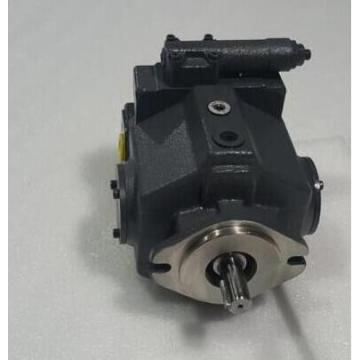 KAWASAKI K3V63DT PISTONS
KAWASAKI K3V63DT PISTONS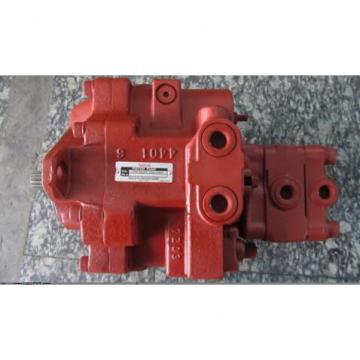 KAWASAKI K3V112DT CYLINDER BLOCK AND R.H. PLATE
KAWASAKI K3V112DT CYLINDER BLOCK AND R.H. PLATE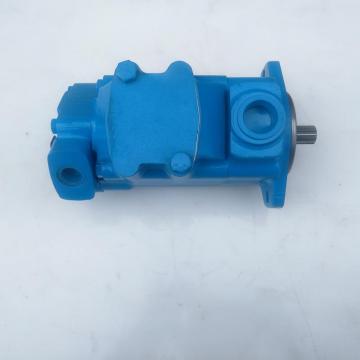 KAWASAKI K3V140DT SHOE PLATE FOR HYDRAULIC OR HYDROSTATIC EXCAVATOR
KAWASAKI K3V140DT SHOE PLATE FOR HYDRAULIC OR HYDROSTATIC EXCAVATOR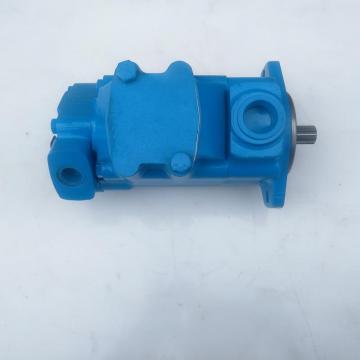 KAWASAKI K3V140DT RIGHT HAND ROTATING GROUP FOR HYDRAULIC EXCAVATOR
KAWASAKI K3V140DT RIGHT HAND ROTATING GROUP FOR HYDRAULIC EXCAVATOR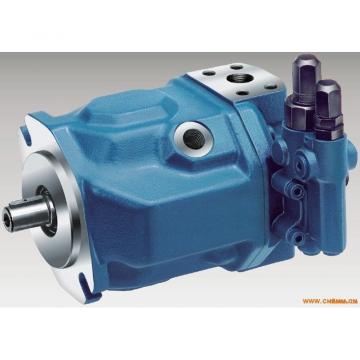 KAWASAKI K3V63DT CYLINDER BLOCK AND L.H. PLATE FOR HYDRAULIC EXCAVATOR
KAWASAKI K3V63DT CYLINDER BLOCK AND L.H. PLATE FOR HYDRAULIC EXCAVATOR